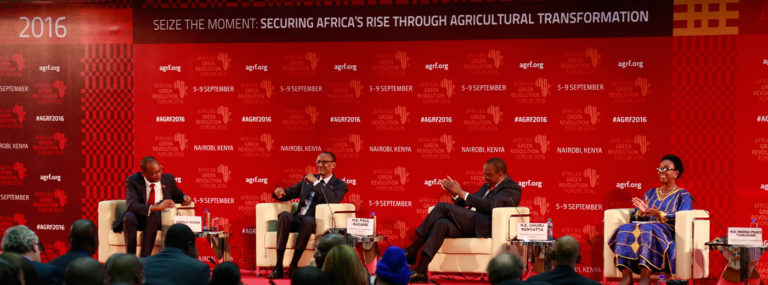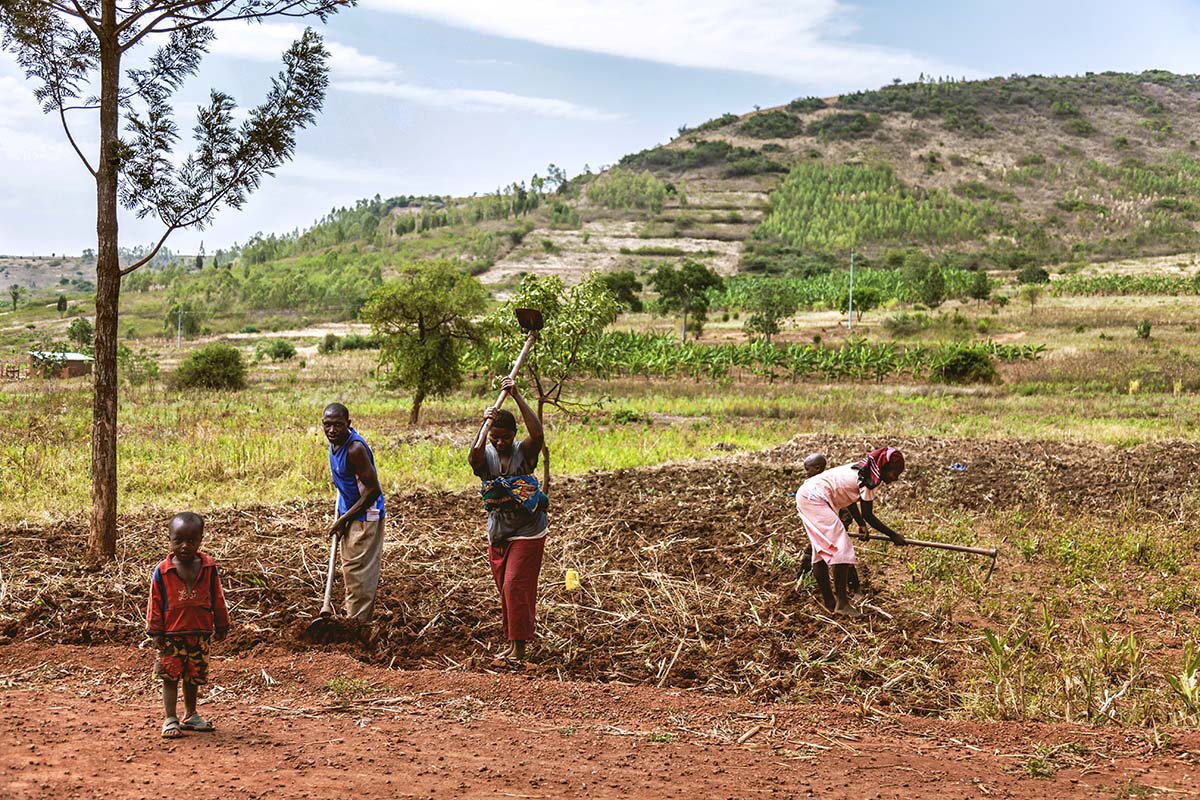“Africa plots golden era of agriculture”
October 17 African agriculture is poised for development as business and government pledge to invest, writes Commonwealth Correspondent Michael Gyekye, 23, from Ghana. The result could be less hunger, more jobs, and stronger economies.
African agriculture is poised for development as business and government pledge to invest, writes Commonwealth Correspondent Michael Gyekye, 23, from Ghana. The result could be less hunger, more jobs, and stronger economies.
African leaders across business and politics and the continent’s development partners are poised to elevate agriculture on the continent to an enviable pedestal through US$200 billion worth of investment into food production and other agricultural activities over the next ten years.
The ambitious program hopes to boost food production to combat especially childhood malnutrition, catalise globally competitive agricultural industries on the continent, spawn millions of jobs to tackle Africa’s escalating youth unemployment menace, and help strained African economies retain billions of dollars lost annually to huge food import bills.
So far, more than US$30bn has been received in pledged contributions to the initiative. These comprise structured contributions from development agencies and African governments, promised private sector agricultural investments on the continent and other significant contributions from leading African corporations. The United States and the Bill and Melinda Gates Foundation are among supporters and contributors to the initiative.
The groundbreaking project was unveiled at this year’s African Green Revolution Forum, held earlier in September in the Kenyan capital, Nairobi, under the theme: ‘Seize the Moment: Securing Africa’s Rise through Agricultural Transformation’.
The African Green Revolution Forum, organized by the Alliance for a Green Revolution in Africa, (AGRA) and its partners, is a multi-stakeholder agricultural development forum that convenes African political and business leaders, agricultural policy experts, international donors and representatives of African farmer and civil society organizations to brainstorm on agricultural development on the continent. This year’s forum was attended by over 1500 delegates from 40 African countries. Attendees included the Presidents of Kenya and Rwanda, and former Presidents of Nigeria and Tanzania Olusegun Obasanjo and Jakaya Kiketwe.
The African Green Revolution Forum 2016 aimed to explore ways of ‘accelerating the progress on agriculture’s contribution to economic growth and transformation and improved livelihoods for all’, in line with delivering on the bold goals set out in the 2014 Malabo Declaration. Delegates pledged to pursue, over the next 16 months prior to the next African Union Heads of State and Government Summit and the Comprehensive Africa Agriculture Development Program (CAADP) biennial review in January 2018, ‘a political, policy and business agenda intended to accelerate small-holder inclusive agricultural transformation in at least 20 countries; unlock at least US$200 billion in investment in African agriculture; and develop a concise agricultural transformation scorecard for accountability and action under the leadership of African Union institutions.’
This year’s forum also saw Nigerian Dr. Kanayo Nwanze, head of the Rome-based International Fund for Agricultural Development (IFAD), receive the inaugural Africa Food Prize for his ‘outstanding leadership and passionate advocacy in putting Africa’s small-holder farmers at the center of the global agricultural agenda.’ Formerly the Yara Prize, the US$100, 000 award honours those extending the frontiers of agricultural development in Africa.
Dr. Nwanze pledged US$3.6 billion from IFAD to support agricultural development in Africa over the next six years.
Kenyan President Uhuru Kenyatta stressed the need for the continental agricultural transformation scorecard to track and measure all commitments to ensure they trigger action.
The next forum will take place next year in Abidjan in Cote D’Ivoire.
Photo obtained courtesy agra.org. More relevant photos and a video may be found at agrf.org/gallery/
This article first appeared in Whats_On Africa at http://whatsonafrica.org/african-leaders-plots-golden-era-agriculture-annual-green-forum/
…………………………………………………………………………………………………………………
About me: I aspire to be a communications, management and policy development consultant. I am a graduate of B. A Political Studies from the Kwame Nkrumah University of Science and Technology, Ghana. I am especially interested in politics, business, technology and sports. I love to read, write, facilitate programs, offer analytical commentary and travel.
Reach me on Facebook at Michael Adu Gyekye
…………………………………………………………………………………………………………………
Opinions expressed in this article are those of the author and do not necessarily represent the views of the Commonwealth Youth Programme. Articles are published in a spirit of dialogue, respect and understanding. If you disagree, why not submit a response?
To learn more about becoming a Commonwealth Correspondent please visit: http://www.yourcommonwealth.org/submit-articles/
…………………………………………………………………………………………………………………




